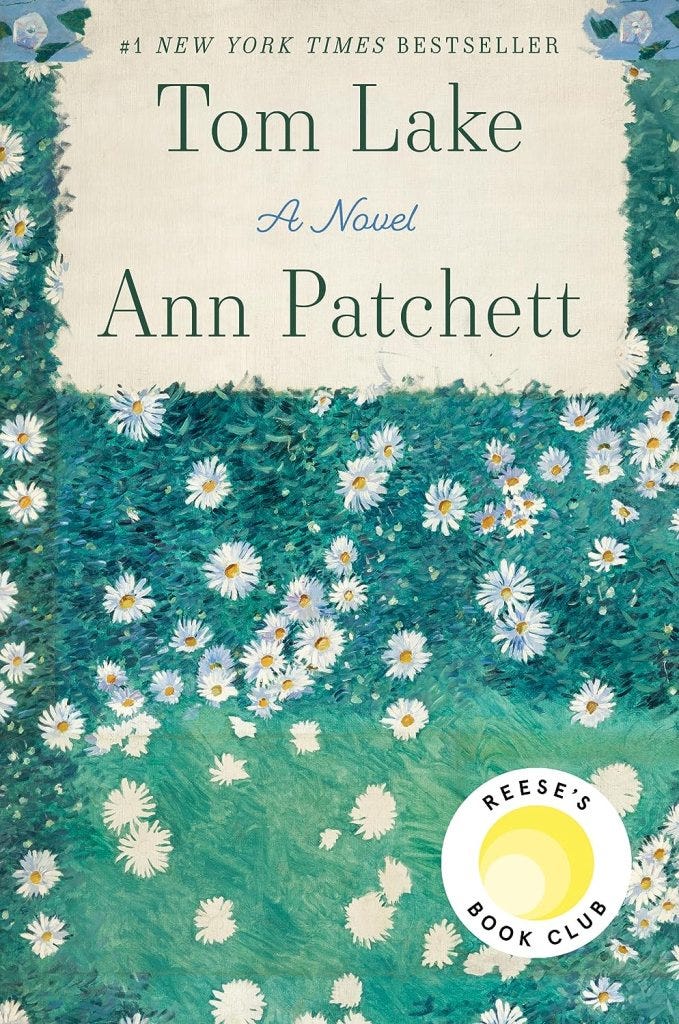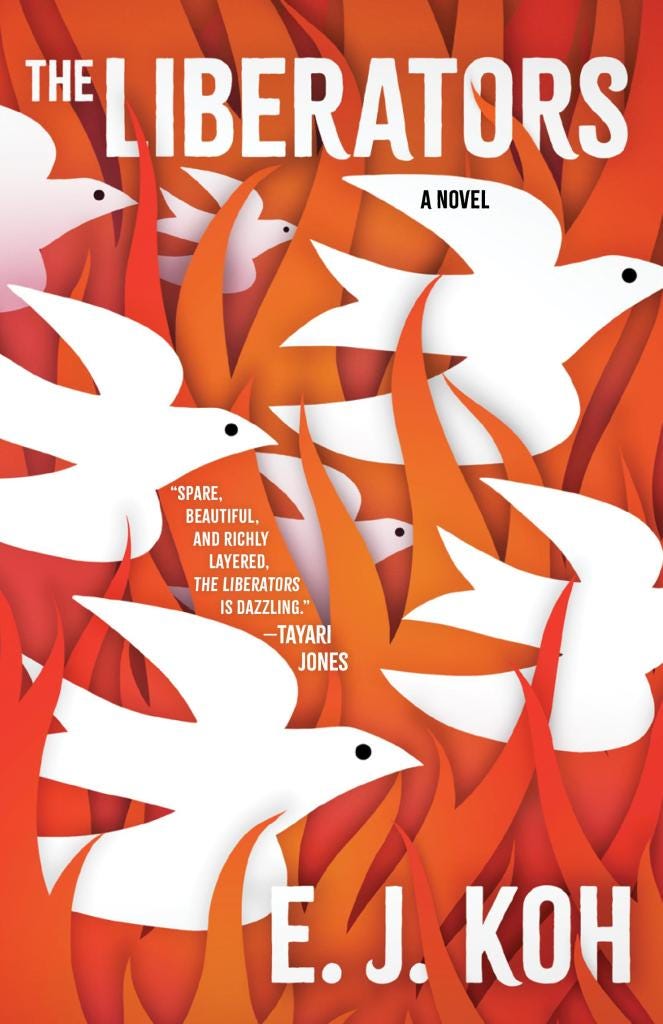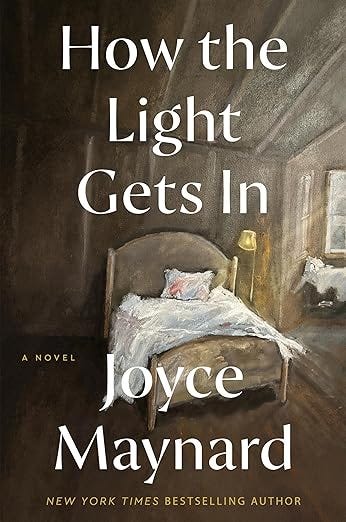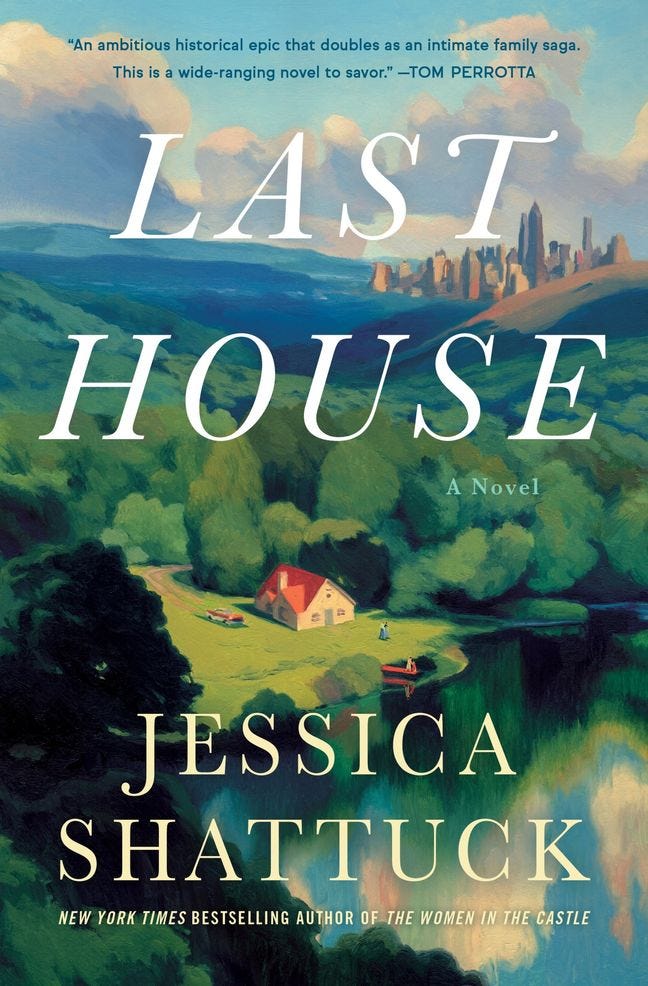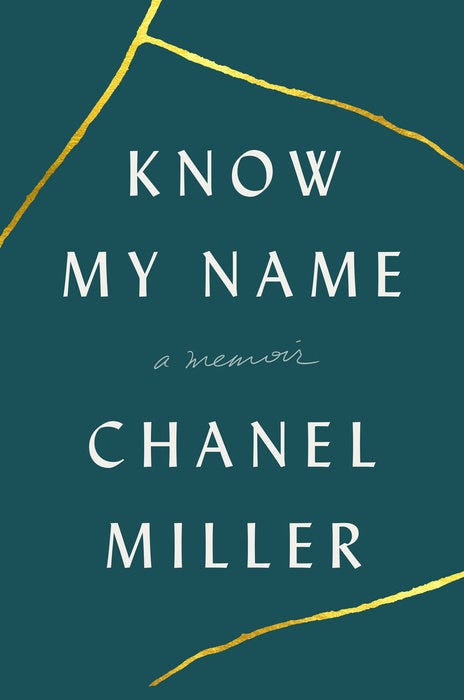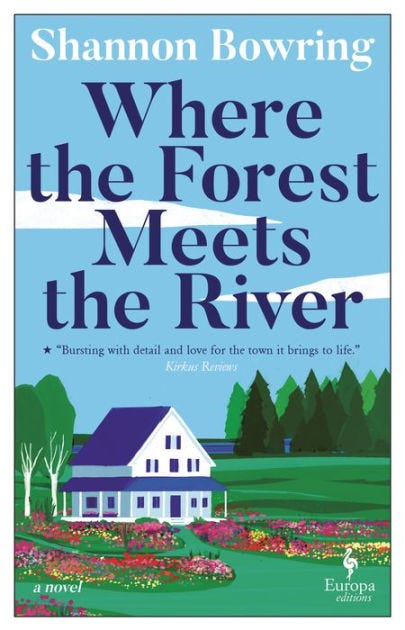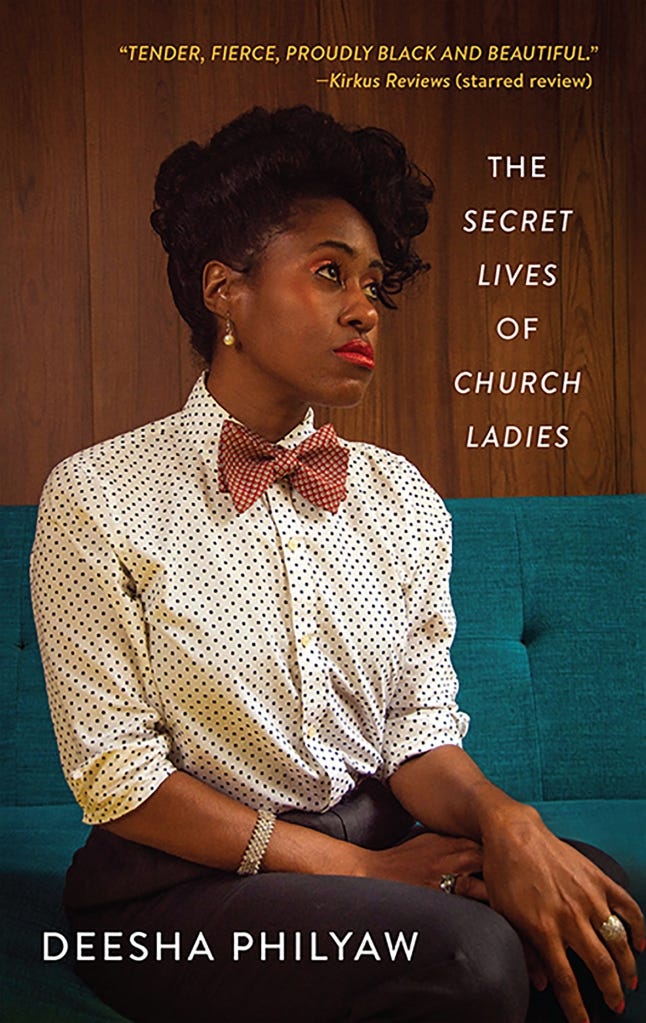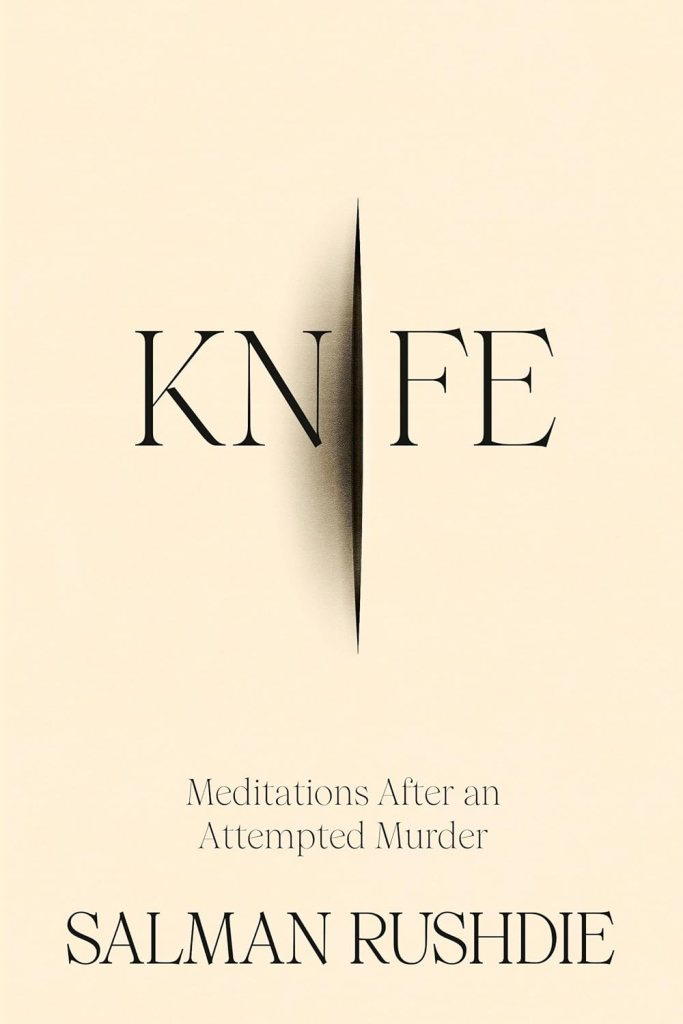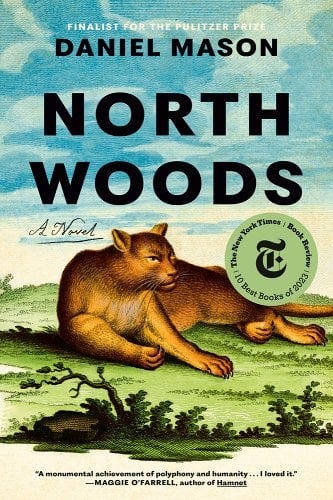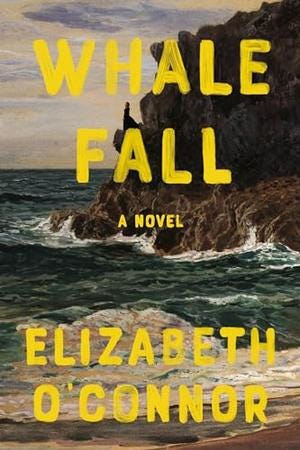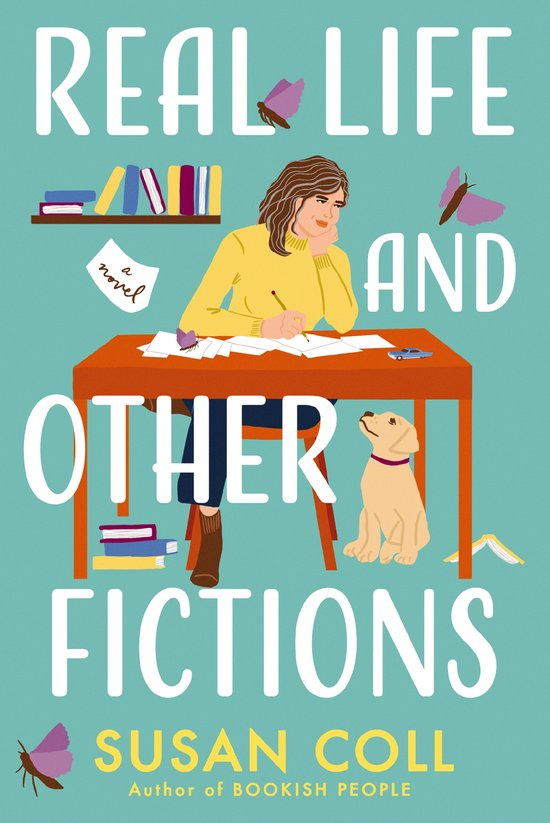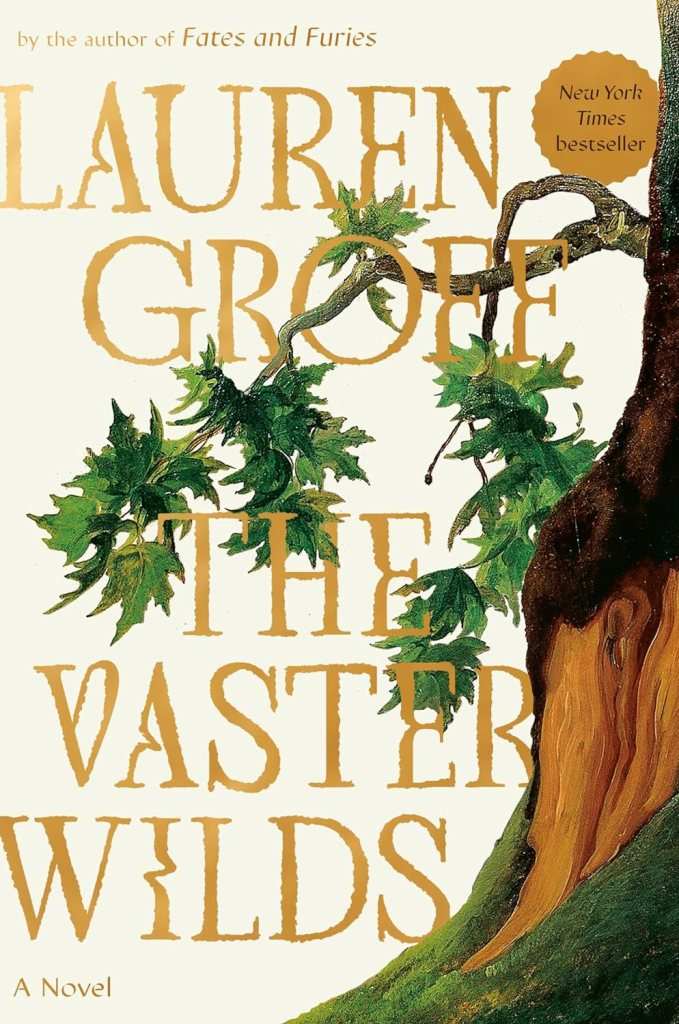14 authors share what they’re reading this summer
See what books are on their TBR lists and discover more books to add to yours!
I was talking to a writer friend when the conversation got around to our summer reading plans. We both had a long list of books we wanted to read, but we acknowledged that our desire to read seemingly every book out there was not realistic. So what we have is a wish list from which we’ll read several books and then, at the end of summer, we’ll magically transform it into our Fall reading wish list.
Anyway, that conversation made me wonder what other writers were hoping to read this summer. I sent out the Bat signal and heard back from nearly 30 writers. Obviously, putting all of their lists in one post would set a world record for Longest Blog Post, so I’ve split it in two. Part 1 features 14 writers. I’ll post Part 2 next week. (If you’re a published writer and I overlooked you, feel free to send me your list of 5-10 books by Monday, June 24.)
Alice Elliot Dark (Fellowship Point, Think of England, In the Gloaming: Stories)
This is my summer of sentences. I am reading for the pleasure of well-formed sentences. I have picked:
Surprised by Joy by C.S. Lewis. An autobiography of the author’s conversion to becoming a believing Christian based on reasoning his way to the source of his experiences of joy. His sentences bring me deep joy; absolutely brilliant argument and writing.
My Struggle by Karl Ove Knausgard: I started listening to Book One and immediately ordered the hard copy. Hope to get through at least the first two this summer and read it all as I am able. I adore his project and his voice.
Swann’s Way by Marcel Proust: My son gave me the boxed set for my birthday. He has read them upside down and backward and is doing a podcast about Remembrance of Things Past, so I have to stop procrastinating about it.
And in the contemporary arena: The Garden by Clare Beams (medical malfeasance, love her writing) and Tom Lake by Ann Patchett (Who is better? She’s a wizard.)
For background of the novel I am writing: Dancer From the Dance Andrew Holleran. This is a reread and wow, the beauty of these sentences and the close up portrayal of gay New York in the 70s and 80s—this makes my year. Just so great.
The Line of Beauty by Alan Hollinghurst. Another reread, first section set in London in 1983, again the sentences! Whole stories in a sentence. How does he do it?
Elizabeth Rosner (Third Ear: Reflections on the Art and Science of Listening, Survivor Café: The Legacy of Trauma and the Labyrinth of Memory, Electric City, Gravity, Blue Nude, and The Speed of Light)
The Liberators by E.J. Koh (re-reading): This book is so gorgeous and brilliant and powerful that as soon as I finished reading it the first time I wanted to go back to the beginning and start over. Slower this time.
Vertigo by W.G. Sebald: I recently bought a second copy of this book by mistake, so it must be time to start reading it. From other books of his, I’ve been fascinated by Sebald’s unique approach to blending text with visual images and the way his narratives move through time. I’m always tempted to imitate his method, but it’s inimitable.
Lucy by the Sea by Elizabeth Strout: I just finished reading one of Strout’s earlier books, Anything is Possible, and I’m guessing that like a lot of people who fall in love with her exquisite characters and braided storytelling, I feel eager to dive back into another one of her books.
Night Boat to Tangier by Kevin Barry: After reading an advance copy of his phenomenal new novel, The Heart in Winter, I’m realizing I need to go backward and catch up with some of his previous work. Irresistibly great narrative voice.
Your Presence is Mandatory by Sasha Vasilyuk: I’ve heard so many raves about this book that I’m eager to get my copy and start reading any minute now. My mother’s first language was Russian, and she was quite obsessed with Russian literature. I have always been intrigued by the complexity of Russian history both distant and recent.
Fatelessness by Imre Kertesz (re-reading): I can’t fully explain why it was that I hadn’t read this Nobel Prize winner’s book until recently, but maybe I just wasn’t ready before. The spareness and directness of the writing manages to make my heart pound. Because Kertesz was the same age as my father and describing his experiences as a teenager imprisoned in Buchenwald, it’s like bearing witness to my father’s life too. And so I need to read it at least once more.
Debra Thomas (Josie and Vic, Luz)
Because I love books that have meaningful plot lines involving animals: The Elephant of Belfast by S. Kirk Walsh, Crow Talk by Eileen Garvin, and Leaning on Air by Cheryl Grey Bostrom
Because I love anything written by Joyce Maynard, I’m looking forward to her sequel to Count the Ways: How the Light Gets In (June 25)
Because I’m an immigrant rights advocate: Crossing the Line: Finding America in the Borderlands by Sarah Towle
Because I keep hearing how fabulous it is: North Woods by Daniel Mason
I plan to end my summer reading with old friends Olive Kitteridge and Lucy Barton in Elizabeth Strout’s latest: Tell Me Everything (August 25)
Happy summer reading, everyone!
Virginia Pye (The Literary Undoing of Victoria Swann, Shelf Life of Happiness: Stories, Dreams of the Red Phoenix, and River of Dust)
The Wren, The Wren by Anne Enright: A poetically told Irish novel about a mother and daughter written with charm and honesty. I loved Enright’s The Green Road, but this one is even more memorable.
Last House by Jessica Shattuck: A sweeping, multigenerational story that shows the vast changes in America through characters of the Greatest generation and the Me generation.
The Guest by Emma Kline: Told in the mind of a complex, deluded young woman who unravels over the course of a few days, creating disasters in her wake and yet somehow remaining sympathetic.
This Strange Eventful History by Claire Messud: An expansive multi-generational story of an Algerian family. I gather the characters are carefully wrought and the novel beautifully written.
Let Us Descend by Jesmyn Ward: I’ve heard that this isn’t her strongest novel, but I still feel confident her writing will surprise me with its tough elegance.
Sam by Allegra Goodman: I’ve gotten less interested in child or teen narrators, but I gather this story is surprisingly touching.
The Garden of Monsters by Crystal King: A story about Salvador Dali’s muse set in a garden of stone “monster” sculptures in Italy, this novel by my friend Crystal King seems a fantastic story, combining mystery and art with her usual flare.
Yi Shun Lai (A Suffragist’s Guide to the Antarctic, Pinups, Not a Self-Help Book: The Misadventures of Marty Wu)
With Twice the Love, Dessie Mei by Justina Chen: This middle-grade novel about twins separated at birth has been getting rave reviews, and even if it weren’t written by one of the most generous people I know in publishing, I’d still pick it up. There aren’t enough adoptee stories out there, and this population’s varied unique experiences are ones I want more of on my bookshelf.
Better, Faster, Farther by Maggie Mertens: I’m already partway into this book, and I can’t wait until it launches this week to the rest of the world. I met Mertens at AWP last year, and was so excited to meet her and get an ARC of this book. It’s an exploration of running, a thing I enjoy myself, and how it’s changed the way we look at women. Maggie is a gifted storyteller and a diligent journalist, and this book is going to make a difference.
The Davenports by Krystal Marquis: I picked up this YA novel earlier this year and have just been waiting for some quiet time to tear through it. It’s about a Black family living in 1910 Chicago. I lived there myself for three glorious years, but my experience there didn’t include an understanding of Black history in this city I loved so much. A few years ago, I read some of Nella Lawson’s work, and I’m looking forward to this perspective to broaden my view of this time period.
Not Light, but Fire: How to Lead Meaningful Race Conversations in the Classroom by Matthew R. Kay: This one is a little wonkish, but I’m always looking for ways to foster better conversation. Recommended by one of my personal heroes, a former student of mine in the Bay Path Creative Nonfiction MFA.
Know My Name by Chanel Miller: This one is way overdue. I think maybe I balked at picking it up all these years it’s been out because I knew it would induce so many feelings. I think maybe I’m ready for it now. I’ve been following Miller’s Instagram account and her drawings for some time, and I admire her so much–I’m looking forward to getting to know her in this manner. And, she has a middle-grade book out…ugh, so many books!
The Body Keeps the Score by Bessel Van der Kolk: I know, I know. How can I not have read this book? For those like me who haven’t cracked it yet, this dense, dense volume is about how trauma affects us–and how it can manifest in surprisingly corporeal ways.
Heather Bell Adams (Maranatha Road, The Good Luck Stone)
Housemates by Emma Copley Eisenberg (Hogarth, May 28): When Bernie replies to Leah’s ad for a new housemate in Philadelphia, the two begin an intense and defiantly uncategorizable friendship based on their mutual belief in their art. I love books about artists and complicated relationships, especially in forced proximity situations.
You Were Watching from the Sand by Juliana Lamy (Red Hen Press 2023): I’m looking forward to this short story collection written in a mixture of high lyricism and absurdist comedy, set in Haiti, a culture I’d like to know more about.
Fire Exit by Morgan Talty (Tin House, June 4): This novel by the acclaimed author of the collection Night of the Living Rez sets up some pretty interesting family dynamics when the main character decides he’s no longer willing to hide the fact that he is a father. Will his daughter want to know the truth?
The Patron Saint of Lost Girls by Maureen Aitken (Southeast Missouri State University Press 2018): I love a linked story collection! This one is set in the Midwest in the 1970s-80’s and tackles economic struggle, violence, and addiction.
Beautiful Dreamers by Minrose Gwin (Hub City Books, August 27): A precocious teen’s family is unraveled by a con man. Set in 1953 on the Mississippi Gulf Coast, I’m sure this novel will have a delicious sense of place.
How Not to Drown in a Glass of Water by Angie Cruz (Flatiron Books, 2022): I keep hearing about this book, even coming up on two years after its publication. It’s been called “an endearing portrait of a fierce, funny woman,” and the main character sounds like someone I’d like to meet.
Where the Forest Meets the River by Shannon Bowring (Europa Editions, Sept 3): I loved the first book in the series, The Road to Dalton, and was thrilled to snag an e-galley of this follow-up. Highly recommended for fans of Elizabeth Strout; Bowring delicately crafts characters so true to life you’d swear they were on the porch beside you.
In This Ravishing World by Nina Schuyler (Regal House Publishing, July 2): Nine connected stories set against the backdrop of the climate crisis. If you subscribe to Schuyler’s Substack, “Stunning Sentences,” you know she is beautifully attentive on the line level.
This Strange Eventful History by Claire Messud (W.W. Norton & Co., May 14): I’ve been a longtime fan of Messud’s work, and this new novel is largely based on her own family’s history.
Toni Ann Johnson (Light Skin Gone to Waste: Stories)
Praise Song for the Kitchen Ghost by Crystal Wilkinson: This is a memoir that includes family recipes. Wilkinson is a multi-award-winning Black Appalachian writer and former poet laureate from Kentucky whose work I adore. Her poetry book Perfect Black won the 2022 NAACP Image. Her stunning short novel Birds of Opulence wowed me. She’s won the O. Henry Prize and the Ernest Gaines Award and she’s one of my favorite writers. I’ve heard her read from Praise Song and I’m looking forward to digging into it soon.
The Heartbreak Years by Minda Honey: I met Minda Honey at a residency in May. She’s whip-smart, kind, and hilarious, and I’m eager to read this memoir. I bought the audiobook version, which she narrates. The memoir is about her experiences with men in her twenties and thirties and though I’m a generation older than Ms. Honey, I suspect I’ll relate to some of her experiences.
The Secret Lives of Church Ladies by Deesha Philyaw: I listened to the audio version of Philyaw’s award-winning book when it came out and I loved it. It’s so good! Philyaw won the Story Prize for this collection and it’s now being developed into a TV show. The stories are moving, entertaining, and smart. This summer, I look forward to sitting down and savoring the physical copy, which I often do when I love an audiobook.
Anansi’s Gold by Yepoka Yeebo: I already read this wildly fantastic work of nonfiction, but it was so good I’m eager to reread it. It’s about a Ghanaian con man who ran one of the longest and most successful frauds in history, conning investors in the US, Africa, Europe, and Korea. The man, John Acka Blay-Miezah is a bespoke suit-wearing, cigar-smoking, colorful character who seems like a character in a heist movie, but he really existed.
The Fraud by Zadie Smith: I’ve not read this yet, but I’m excited to! I love Zadie Smith and I’ve heard excellent things about his historical novel based on an actual trial.
Fresno Stories by William Saroyan: I have this on my Kindle, but I’ve yet to dive in. I was recently shortlisted for the Saroyan Prize so I figured I should make it my business to familiarize myself with Saroyan’s work. He was an Armenian writer from Fresno and some of his work is based on his childhood and family. Some of my work is based on my childhood and family as well, and I’m eager to discover what he does with his.
Margaret Verble (Stealing, When Two Feathers Fell from the Sky, Cherokee America, and Maud’s Line)
I’ve been traveling too much and not reading enough. Here are the books I purchased recently and why I picked them:
Knife: Meditations After an Attempted Murder by Salman Rushdie: It’s not often that someone tries to murder an author at a book event. Fortunately. I want to know all about it.
Under the Bridge by Rebecca Godfrey: Hulu is making this true crime into a limited series starring Lilly Gladstone (who I have a crush on).
The Princes in the Tower by Philippa Langley: This is by the same woman who found Richard III, and it’s about one of the most enduring of all true crimes.
Ghost Hunters: William James and the Search for Scientific Proof of Life After Death by Deborah Blum: I’ve been interested in both William and Henry James since I was in college.
Eastern Cherokee Stories by Muse Isaacs: Trying to get some wisdom from the elders.
“Vaudeville Indians” on Global Circuits, 1880s-1930s by Christine Bold: This book touches on so many things I’m interested in – pretendians, vaudeville, and how Natives have managed to survive.
James by Percival Everett: Yes, finally, a novel. I taught Huckleberry Finn so many times I wanted to drown Huck and Jim both. But I consider it a great American novel, and I hope this one is, too.
The Vinland Sagas: I’ve just been to Iceland. It totally seduced me.
Independent People by Halldor Laxness: Its Icelandic author secured the Nobel Prize for Literature with this book.
The Demon of Unrest: A Saga of Hubris, Heartbreak, and Heroism at the Dawn of the Civil War by Erik Larson: An impulse buy. But I have enjoyed so many of his books.
Mary Morris (Gateway to the Moon, All the Way to the Tigers: A Memoir, The Jazz Palace, Nothing to Declare: Memoirs of a Woman Traveling Alone, and others)
For the past several years more of my reading has been research based or books I need to read for teaching. But I turned in the novel I’ve been researching and I stepped down from my teaching job and suddenly I’ve got a clean slate. I can read whatever I want. I’m a bit of a kid in a candy store. There are literally piles of books all around my house that I’ve been wanting to read — piles I keep moving around. But I created a more or less tidy stack of summer reading on the dresser. This may all be wishful thinking, but here goes.
At the moment, I’m finishing North Woods by Daniel Mason, which I began in the winter. And loving it. Next in line are Claire Messud’s new historical novel that is getting such great reviews, This Strange Eventful History, and Jayne Anne Phillips’ Night Watch, which won the Pulitzer Prize for Fiction on May 6. I’m planning on reading Jesmyn Ward’s Let Us Descend and Colum McCann’s American Mother.
I’m also planning to read a few books that I’ve just been wanting to read, like more of Shirley Hazzard (The Great Fire) and Elizabeth Bowen. Also, I somehow missed Julia Phillips’ Disappearing Earth.
That should get me to Labor Day. Or beyond. We’ll see.
Shannon Bowring (The Road to Dalton and Where the River Meets the Forest)
Arcadia and/or Matrix and/or Delicate Edible Birds by Lauren Groff: I am woefully late to the game in my adoration of Groff, but after reading Florida recently, I’m excited to read more.
Fire Exit by Morgan Talty: Not only do I want to support a fellow Maine author, I also just love the way Talty writes.
Bear by Julia Phillips: Phillips’ first novel, Disappearing Earth, is one of my go-to book recommendations for anyone looking for beautifully written, setting-centric storytelling. I can’t wait to dive into her new book.
Whale Fall by Elizabeth O’Connor: I catalog new books for my local library, and so I have the unique joy of unpacking new books on a regular basis. The cover of this one caught my eye, and then the description won me over. I love a good story about a young woman living in a remote community.
Sociopath: A Memoir by Patric Gagne: As a true crime fan, I’m intrigued to read about sociopathy from a firsthand, non-serial-killer perspective.
Caroline Leavitt (Days of Wonder, With or Without You, Cruel Beautiful World, Is This Tomorrow, and co-founder of A Mighty Blaze website and podcast with Jenna Blum)
Summer books don’t have to be lighthearted reads that are as quick as a dip in the pool. Give me dark, complex, thorny, and serious reads—all year round. Here’s five I love.
Tell Me Everything by Elizabeth Strout (September 10, Random House): Pulitzer Prize winning Strout delivers another extraordinary novel, filling her pages with the familiar presence of beloved characters, from Bob Burgess to famed writer Lucy Barton and her ex-husband William, and of course, the very prickly Olive Kitteridge. When a woman is found dead in a quarry, Bob agrees to represent the haunted prime suspect—the woman’s son. But the novel isn’t just interested in crime. Strout focuses on the stories we tell, the tales we listen to or doubt. Olive gossips with Lucy, Bob begins to have new feelings for Lucy, Lucy talks with and considers everyone, and as all these conversations swirl, the stories of others imbibe their own lives and stories with new meaning.
Bear by Julia Phillips (June 25, Random House): Twenty-something sisters Sam and Elena are inseparable and have made plans to leave their isolated island off the coast of Washington State as soon as their mother dies, But then, enter a bear, a wild animal that each sister experiences very, very differently. While Sam is increasingly uneasy around the bear’s dangerous presence, she’s even more frustrated when Elena seems to grow closer, believing that this animal is somehow as magical as a fairy tale. Ferocious and wild with imagination, Bear is as unsettling as it is heartbreaking.
The Cheesemakers Daughter by Kristin Vukovic (August 6, Regolo Press): How could you not love a novel about cheese? I first read this book in galley form, and I was so enthralled that when I turned the last page, I read it again. Marina, a refuge from what was Yugoslavia, is now living in New York grappling with her crumbling marriage, her dark heritage, and her own identity as a Croatian American. But then, her father calls her back to the one place she had never wanted to return to, Croatia, begging her to help save his failing cheese company. About culture, community and what it means to be a refuge from your country and your own life, The Cheesemaker’s Daughter is immersive, fascinating and unforgettable.
Tehrangeles by Porochista Khakpour (June 11, Pantheon): What’s it like to be a wealthy Iranian living in America? Khakpour zooms in on the Milani family –four spoiled daughters and their privileged parents—all made obscenely wealthy by their snack food empire. Just as they’re about to become reality television stars (think Kardashians), the pandemic hits, unleashing long buried dreams and resentments and creating havoc. Yep, it’s satirical and smart, but it’s also hilariously profound. Plus, the cover is as exuberant as the prose.
The Most by Jessica Anthony (July 30, Little, Brown and Company): The Most may be just 133 or so pages, but it’s one of the most haunting novels I’ve ever read. Set against the backdrop of the 1950s when Sputnik 2 is circling the planet, it tells the story of a married couple: Kathleen, who was once a college tennis champ and is now a housewife living in Delaware, and her handsome husband Virgil. Both harbor secrets and desires, and over the course of one day, when Virgil and their two sons head for church, Kathleen goes into the pool and refuses to come out. As secrets and desires come to the surface over the course of just eight hours, their life fractures—and then reconfigures. Melancholic and gorgeous.
Jodi Paloni (They Could Live with Themselves: Stories)
On my summer reading list is a combination of book club books, and books I’ve been wanting to get to all year.
For my book clubs, I’ll be reading Spring Rain: A Life Lived in Gardens by Marc Hammer, Remarkably Bright Creatures by Shelby Van Pelt, and Americanah by Chimamanda Ngozi Adichie.
I’ll be finishing the memoir Shift by my brilliant friend Penny Guisinger, and I’m looking forward to reading more books by Maine authors such as Monica Wood’s How to Read a Book and Roxana Robinson’s Leaving.
I’ll return to some short stories of Alice Munro, and I’ll treat myself to Within Arm’s Reach by Ann Napolitano, about three generations of an Irish American family. If it’s as good as Hello Beautiful, I’ll be thrilled.
Paula Whyman (You May See a Stranger: Stories)
My summer reading has already begun. I’ve been tearing through the delightful, dark, funny Real Life and Other Fictions by Susan Coll, in which a woman at a transition point in her life is searching for the truth about a murky past.
I’ve also started reading the nonfiction historical adventure, Brave the Wild River: The Untold Story of Two Women Who Mapped the Botany of the Grand Canyon by Melissa Sevigny. The latter is exactly as it sounds—in the late 1930s, when few people have done so successfully, two women attempt the dangerous journey down the Colorado River to collect plant specimens. I’m finding it riveting.
I’ll continue to read Crossroads: How Road Ecology is Shaping the Future of Our Planet by Ben Goldfarb. If that sounds dry, I can only say that it isn’t. Goldfarb writes a lively, engaging story about what our road system has meant for animal migrations and nature in general, and what might be done about it.
Two books I’m looking forward to that reflect on nature, conservation, and history from different perspectives: Camille Dungy’s Soil: A Black Mother’s Garden and Olivia Lang’s The Garden Against Time: In Search of a Common Paradise.
Two “ambitious” reads that I’ve been saving for the summer when there is the myth of more time available to read: Emily Wilson’s translation of The Iliad and Thomas Pynchon’s novel Mason & Dixon.
I’m eager to read a new novel by an author whose first novel was vivid, searing, and unputdownable: The Banana Wars by Alan Grostephan, set in Colombia (like his first novel, Bogota) in the 1990s. This book won the Dzanc Prize for Fiction.
For some comic relief, I’m turning to books by two British authors whose work I’ve read and loved before: Helen DeWitt’s short novel The English Understand Wool (her novel The Last Samurai is a must-read) and Jane Gardam’s The Man with the Wooden Hat, which is the second novel in her Old Filth Trilogy. (FILTH is an acronym for Failed in London, Try Hong Kong.)
I always make these lists with the best of intentions. How much will I actually have time to finish this summer? This might be a list of lies! An aspirational list? We’ll see.
Siobhan Fallon (The Confusion of Languages and You Know When the Men are Gone: Stories)
I have been derelict in my reading duties these last six years. Much of my life has been dominated by fiction. Reading it, writing it, repeat. But soon after my last novel, The Confusion of Languages, was published (hardcover came out in 2017!!!), I started to work on a new novel, trying my hand at something absolutely new to me: historical fiction that deals with the Battle of the Little Bighorn of 1876, and the fall-out that happened to both US military and indigenous American families most affected by this conflict. I quickly lost myself in research materials and countless eyewitness accounts. Where I once had stacks of new fiction piling up around my bed, office, and any random surface, I now had real-life military court martial and court of inquiry testimonies, histories of the Civil War and the Indian Wars, biographies, maps, manuals on everything from how to use brain-tanned buffalo skin to make a tipi to the correct way to observe Victorian mourning.
Well, a few months ago I finally finished a solid draft of this work-in-progress. And realized I better dip into fiction very quickly to get a sanity check and see how my own work compares to recent, well-received, and respected historical novels out there in the world.
It felt a little bit like Christmas to pick out the following books with the hopes that one, they would be awesome, and two, they would challenge and inspire me to make my own novel better. And what a joyful way to “work” on my writing this summer!
Here are the books I decided on and why:
The Trackers by Charles Frazier: I’m a fan of Frazier’s Cold Mountain, and its nuanced portrayal of the South post-Civil War. Though Frazier’s latest is set during the Depression, it also has one foot in the Old West. And a good friend of mine loved it (always the best reason to pick up a book!).
The Vaster Wilds by Lauren Groff: This is set in the Colonial era, but the uncertainty and violence of life at this time, the warring between what is known and unknown, civilization vs. “the wilds” is something I am hoping to replicate in my own work.
Where the Lost Wander by Amy Harmon: This novel takes place on a wagon train traveling the Overland Trail in 1853, and there is a relationship between a white woman and a half-Pawnee man. I am hoping this novel explores what is actually “hostile territory”— in geography, society, and emotion.
The Frozen River by Ariel Lawhon: This book opens in 1789, which is nearly 100 years before the setting of my own novel. But there is a strong female protagonist, and much of the book revolves around an actual court case. My novel also has strong women who work to rise above the limitations the world has put upon them at the time, and my novel also revolves around an actual and highly publicized court of inquiry that occurred in 1879. So I am curious to see how Lawton balances, reveals, and transforms real history into fiction.
Night Watch by Jayne Anne Phillips: This novel is set in 1874 and deals with the trauma of a nation reeling from being recently ripped apart, as well as a military family trying to survive. The mother has gone mad and the daughter, who narrates the book, must care for her. There are themes of race and upheaval here that I am also trying to tease out in my own work.
Happy reading everyone! May your summer reading be an inspiration to you too!

